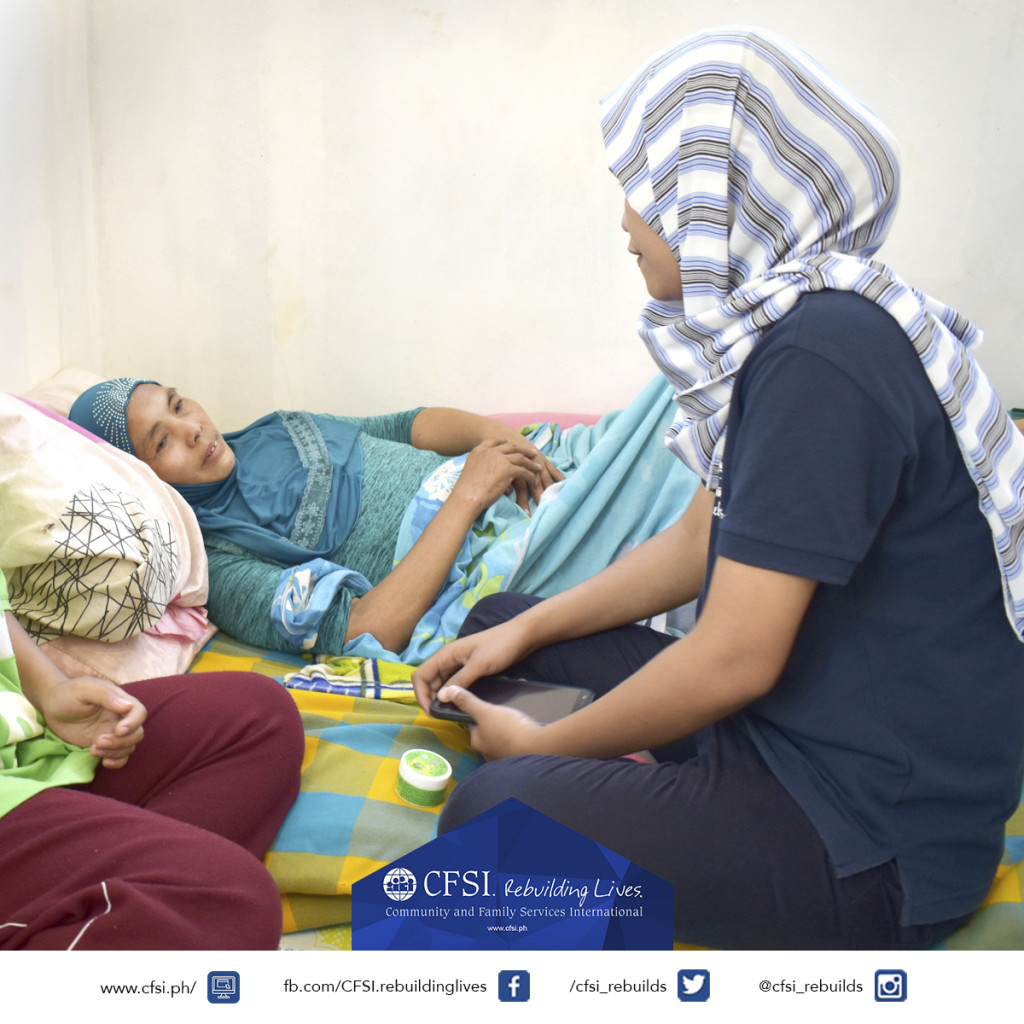Field assistants are among those who play a crucial role in engaging with the community. They are the front liners in humanitarian work as they carry out various activities that directly engage the communities. In the Marawi Recovery Project (MRP), Field Assistants assist the Community Organizers not only in the project implementation, but in building relationships between the organization and the project beneficiaries as well. Field Assistants get to meet beneficiaries and have personal interactions with them. They serve as the eyes and ears of the organization, gathering information on what the communities need and how they can be assisted.
Mohammad Faiz Laut Sarip, 28 years old, a Field Assistant of the Marawi Recovery Project (MRP), has been working in the municipality of Piagapo, Lanao del Sur for almost one year now. This is her story.
Even after being struck by both the tragedy of the Marawi siege and a life-threatening disease, the battle has yet to end for many of our beneficiaries, one of whom is Mosara.
Although primarily based in Piagapo, at one time I assisted our team in conducting intakes and interviews in the newest transitory shelter in Marawi City, the Boganga Transitory Shelter. It was there that I met Mosara Dangcal, 48 years old, an internally living with her five children and husband.
During our interview with her, it was apparent that she did not look well.
I asked her what was wrong, but she brushed off my question, simply said nothing and instead pressed that she was okay. I knew that she was not.
I continued the interview, but I was bothered by the way she kept jerking like she was in pain. I had to stop the interview again. I asked her again if she was okay. This time, a bit more pressingly.
She suddenly burst into tears and then she revealed her ailing condition.
It had already been over a year since she was first diagnosed with Stage 3B Breast Cancer in 2017. That day, she had just been discharged from the hospital after a session of chemotherapy.
Before the Marawi siege, her family used to have a four-storey house and an appliance store that sold televisions in the bustling Barangay Sangkay of Marawi City. Her family had lost all of their assets when they had to flee the attacks.
Now, her family’s primary source of income is from her husband’s stint as a driver of a public utility tricycle. Sometimes, her husband rents a utility vehicle to take passengers. However, almost half of his income from the trips goes to the repairs of the old passenger vehicle.
After losing all of their home and property, being left with no stable income, and going through the pains of being in and out of the hospital since 2017, adding to their list of worries are the costly medical fees and medicines.
She was recently taken to the hospital again because the tumor on her chest returned. Her doctor also found a build-up of fluid in her chest. Although she was kept under medical observation, the doctors were not able to get the water out of her chest.
During our last visit with her, she shared the challenges of being an IDP who suffers from her condition. She said that she wished for extension wires to set up an electric fan in her bedroom to help her sleep with better ease. Furthermore, having only piled clothes for a makeshift bed, she also wished to for a mattress to sleep on. She needs help in sitting up as well. Every time she forces herself to get up on her own, her stiches would rip open and re-open her wounds.
As of writing, she had already gone six cycles of chemotherapy. Had the tumor in her chest not returned, she could have had already undergone radiation by now. With tears in her eyes, she said that she can no longer endure another painful session of chemotherapy.
Through the Marawi Recovery Project (MRP), CFSI will be giving Mosara and her family a livelihood starter set for a small retail store as livelihood support. This aims to help her family financially, earning while being at home. With this, her children would be able to take care of her better.
—
MRP is funded by the Australian Government Department of Foreign Affairs and Trade (DFAT) and aims to promote protection, psychosocial, and economic recovery of at least 4,000 households or about 20,000 individuals who were affected by the May 2017 Marawi Siege, thereby enabling an improved quality of life, the strengthening or relations between peoples, and greater prospect or peace.


